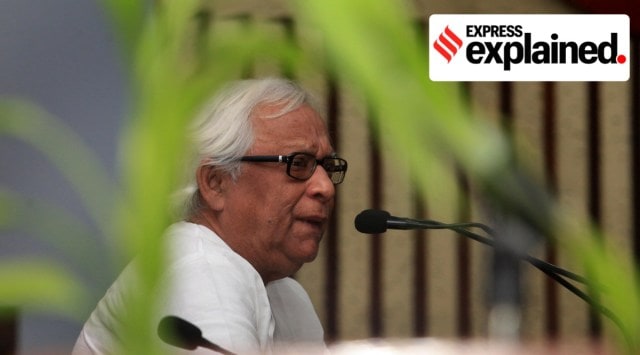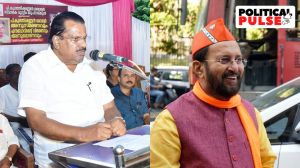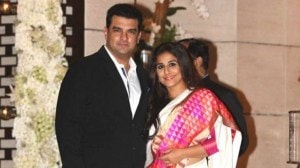- India
- International
Explained: Buddhadeb Bhattacharjee refused Padma award – is recipient’s consent sought?
The Padma awards are announced every year on the eve of Republic Day. A look at its eligibility criteria, the selection and nomination process, and the controversy over former West Bengal CM Buddhadeb Bhattacharjee refusing to accept it this year.
 Buddhadeb Bhattacharjee. (Express Photo: Partha Paul, File)
Buddhadeb Bhattacharjee. (Express Photo: Partha Paul, File)As many as 128 people ranging from veteran politicians, businessmen, scientists and doctors to artists and ordinary people engaged in public service were announced to have been selected for conferment of Padma awards this year on Tuesday. While most accepted the awards gracefully, former West Bengal CM Buddhadeb Bhattacharjee refused to accept it. Singer Sandhya Mukhopadhyay’s family claimed she was offered the award but did not accept it. The award list did not have her name.
What are Padma awards?
The Padma awards are the highest civilian honour of India after the Bharat Ratna. They are announced every year on the eve of Republic Day. The awards are given in three categories: Padma Vibhushan (for exceptional and distinguished service), Padma Bhushan (distinguished service of higher order) and Padma Shri (distinguished service). The award seeks to recognise achievements in all fields of activities or disciplines where an element of public service is involved.
The awards are given in certain select categories which include Art, Social Work, Public Affairs, Science & Engineering, Trade & Industry, Medicine, Literature & Education, Civil Service and Sports. Awards are also given for propagation of Indian culture, protection of human rights, wildlife protection among others.
The PADMA Awards Were instituted in 1954 along with Bharat Ratna. At that time only Padma Vibhushan existed with three sub-categories – Pahela Varg, Dusra Varg and Tisra Varg. These were subsequently renamed as Padma Vibhushan, Padma Bhushan and Padma Shri vide Presidential Notification issued on January 8, 1955. During the years 1978 and 1979 and 1993 to 1997, Padma awards were not announced.
The awardees do not get any cash reward but a certificate signed by the President apart from a medallion which they can wear at public and government functions. The awards are, however, not a conferment of title and the awardees are expected to not use them as prefix or suffix to their names.

A Padma awardee can be given a higher award only after five years of the conferment of the earlier award.
Not more than 120 awards can be given in a year but this does not include posthumous awards or awards given to NRIs and foreigners. The award is normally not conferred posthumously. However, in highly deserving cases, the Government could consider giving an award posthumously.
Who is eligible for Padma awards?
All persons without distinction of race, occupation, position or sex are eligible for these awards. However, government servants including those working with PSUs, except doctors and scientists, are not eligible for these awards.
The award seeks to recognise works of distinction and is given for distinguished and exceptional achievements or service in all fields of activities and disciplines.
According to Padma awards selection criteria, the award is given for “special services” and not just for “long service”. “It should not be merely excellence in a particular field, but the criteria has to be ‘excellence plus’.
Who nominates the awardees?
Any citizen of India can nominate a potential recipient. One can even nominate one’s own self. All nominations are to be done online where a form is to be filled along with details of the person or the organisation being nominated. An 800-word essay detailing the work done by the potential awardee is also to be submitted for the nomination to be considered.
The government opens the Padma awards portal for nominations between May 1 and September 15 every year. It also writes to various state governments, governors, Union territories, central ministries and various departments to send nominations.
There is also no rigid criteria or trenchant formula for selection, according to MHA. However, the lifetime achievement of an individual is among the main considerations.
Who selects the awardees?
All nominations received for Padma awards are placed before the Padma Awards Committee, which is constituted by the Prime Minister every year. The Padma Awards Committee is headed by the Cabinet Secretary and includes Home Secretary, Secretary to the President and four to six eminent persons as members. The recommendations of the committee are submitted to the Prime Minister and the President of India for approval.
Sources said once a preliminary selection is made, the antecedents of the selected awardees are verified using the services of central agencies to ensure nothing untoward has been reported or come on record about them. A final list is then prepared and announced.
Is the recipient’s consent sought?
There is no provision for seeking a written or formal consent of the recipient before announcement of the award. However, before the announcement, every recipient receives a call from the Ministry of Home Affairs informing him or her about the selection. In case the recipient expresses a desire to be excluded from the award list, the name is removed, sources said.
In the case of Buddhadeb Bhattacharjee, MHA sources said, a call was made to his residence on Tuesday morning. “However, since he was unwell, his wife picked up the call and she was informed about the conferment of the award. If he did not want it, he should have informed us,” a home ministry official said.
Newsletter | Click to get the day’s best explainers in your inbox
More Explained
EXPRESS OPINION
Apr 26: Latest News
- 01
- 02
- 03
- 04
- 05










































